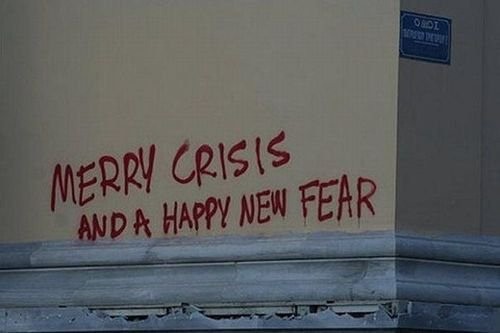Experts play down new Asian financial crisis fear
Post on: 16 Март, 2015 No Comment

Promotions
Plunging emerging market currencies on the prospect of US stimulus tapering have stirred memories of the 1997 Asian financial crisis, but analysts doubt a similar catastrophe is in the making.
There are negative linkages [now] but I don’t think that we are in a repetition of the 1990s crisis, said Jean Medecin, a member of the investment committee at Carmignac Gestion.
While the Indian rupee has so far taken the worst beating, falling nearly 15 per cent against the US dollar over the past three months, Indonesia’s rupiah and the Brazilian real are down 10 per cent, and the Turkish lira over 5 per cent in a trend that is frightfully reminiscent of the crisis that began in Thailand in mid-1997.
Back then, investors reacted by panicking, withdrawing funds en masse, resulting in the Thai baht eventually collapsing. The phenomenon then spread like a wildfire throughout Asia, and even to Russia, with foreign capital vanishing almost with the blink of an eye.
Short of capital, emerging countries suffered acute shortages of credit, plunging them even deeper into the crisis.
Fifteen years on, India’s Prime Minister Manmohan Singh last week said emerging countries were now much better equipped.
In 1991 — several years before the crisis went Asia-wide — India had only 15 days worth of foreign exchange reserves.
Now we have reserves of six to seven months. So there is no comparison, Singh said.
This week, Nobel prize winning economist Paul Krugman wrote on his New York Times blog that in retrospect, the flood of money into emerging markets looked like a bubble.
But Krugman said for the moment, I don’t see a good reason to believe that the bursting of this particular bubble will be catastrophic.
Standard & Poor’s rating agency agreed. In a report, it called the capital outflows disruptive not destructive, and said most Asian developing nations would weather the disruption without a sharp slowdown in economic growth or prolonged financial volatility.
The Economist’s Ryan Avent wrote on his blog that a bigger concern was potential policy errors by governments and central banks trying to stem a currency slide. Recklessly imposed capital controls could fuel panic and impair long-run growth, he said.

India’s central bank has tried to stabilise the rupee for months with measures like raising short-term interest rates and imposing capital controls.
Worse still, central banks may strangle their economies with high rates in an attempt to protect their currencies’ values, Avent said.
Thus the end of US monetary stimulus risks squeezing demand around the world when its purpose was to prop it up in rich countries.
So far, however, central banks seem to prefer hiking short-term rates rather than their main rates, which would slow investment, consumption and growth.
The investment outflow poses immediate risks for Turkey and India as they rely heavily on short-term foreign funds to cover their large current account deficits (6.5 per cent of GDP for Turkey and 4.8 per cent for India).
However tapering concerns is only half the story according to analyst Michael Hewson at CMC Markets.
The growth slowdowns being experienced in those markets have forced investors to look more carefully at the structural problems that are facing those particular economies, with India and Brazil in particular in the firing line, he said.














